On the morning of July 11, 2025, the official WSIS+20 side event, titled “Driving the Future: Opportunities and Challenges of Autonomous Vehicles,” was successfully held at the Palexpo Convention Centre in Geneva, Switzerland. The event was jointly hosted by the Institute for AI International Governance of Tsinghua University (I-AIIG), Globethics, and the Institute for Ethics in Artificial Intelligence at the Technical University of Munich (TUM IEAI). The session drew nearly 100 participants from around the world, attending both in person and online.
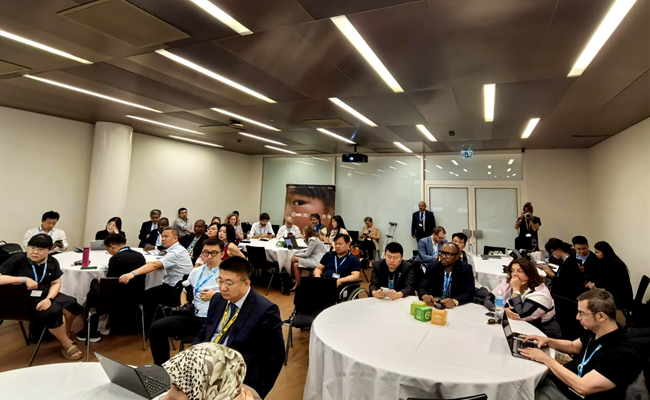
Professor Xue Lan, Dean of I-AIIG, delivered the opening address. He emphasized that autonomous vehicles, as one of the most transformative applications of artificial intelligence, are reshaping how we think about mobility and social operations. “This technology holds enormous potential to enhance human well-being by reducing traffic accidents, improving transport efficiency, and increasing accessibility,” said Professor Xue. “However, it also introduces complex governance challenges, including ethical dilemmas, regulatory uncertainties, and public trust. Tackling these issues requires interdisciplinary dialogue and international cooperation.”
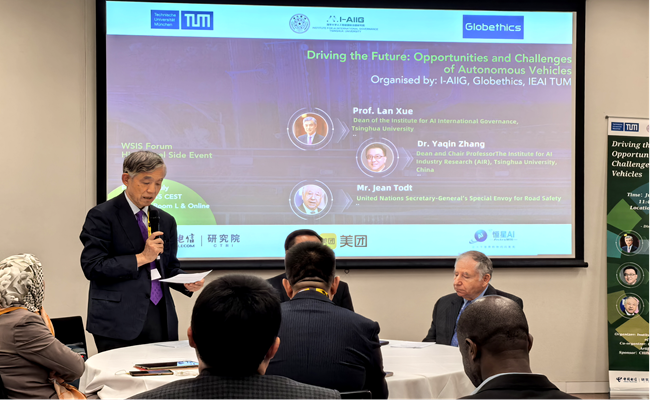
Keynote speeches were delivered by Ya-Qin Zhang, Chair Professor of AI Science at Tsinghua University and Dean of the Institute for AI Industry Research of Tsinghua University (AIR), and Mr. Jean Todt, the United Nations Secretary-General’s Special Envoy for Road Safety. Zhang shared a broad overview of the latest advancements in autonomous driving, highlighting how large language models are improving path planning and system control. He noted that L4-level technologies could see widespread adoption within the next five years. Mr. Todt, drawing from his global experience in promoting road safety, emphasized that the deployment of autonomous vehicles must consider not only advanced economies but also low- and middle-income countries. He underscored the importance of inclusive development and called for stronger commitments to road safety education and regulatory responsibility.
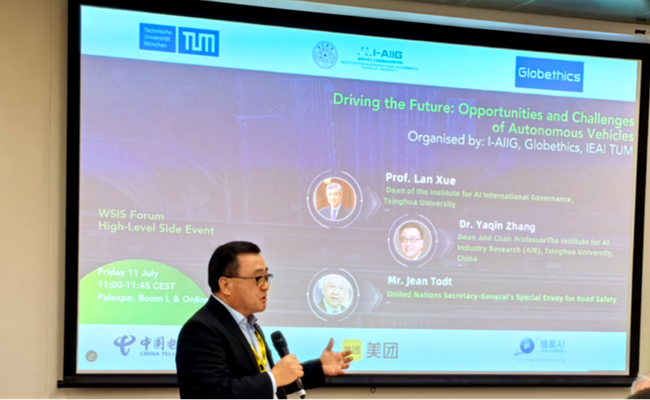
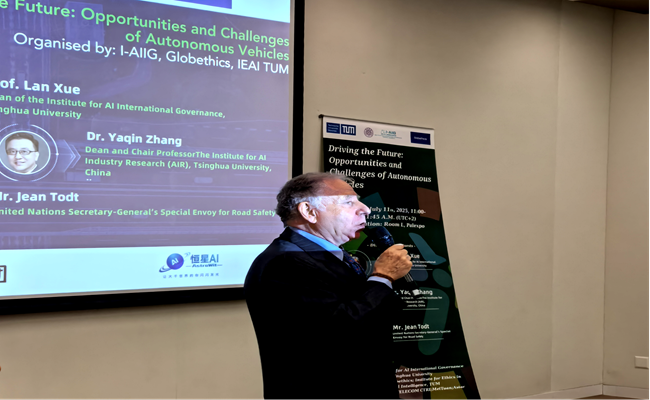
The roundtable discussion, moderated by Professor Liang Zheng, Vice Dean of I-AIIG, featured Vincent Vanhoucke (Waymo), Shen Weixing (School of Law, Tsinghua University), Alexander Kriebitz (TUM IEAI), and Helen Pan (Baidu Apollo). Speakers explored key issues in autonomous driving, including technological advancements, commercialization, regulation, and social impact. “Autonomous driving is not just a future technology—it is already here,” said Vanhoucke. “But it poses one of the most complete AI challenges: the system must perceive and reason like a human.” Kriebitz stressed the need for a globally coherent ethical framework, and Professor Shen emphasized the urgency of enhancing legal clarity to match technological advancements. “The law should strike a balance between encouraging innovation and safeguarding public interest,” he noted.
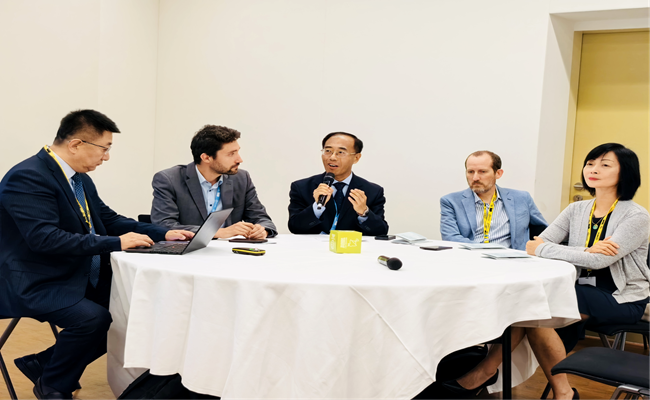
In the afternoon, a closed-door workshop was held at the Hilton Geneva Hotel. The session brought together representatives from Waymo, Volkswagen, Changan, DeepRoute.ai, TUM, the University of Geneva, ETH Zurich, the University of Edinburgh, and Rutgers University, as well as international standard-setting organizations such as the International Telecommunication Union (ITU) and the Institute of Electrical and Electronics Engineers (IEEE), and government agencies including China’s Ministry of Public Security and the Shenzhen Urban Transport Planning Center. Participants exchanged perspectives on autonomous vehicle technologies, commercial pathways, ethical governance, and regulatory best practices.
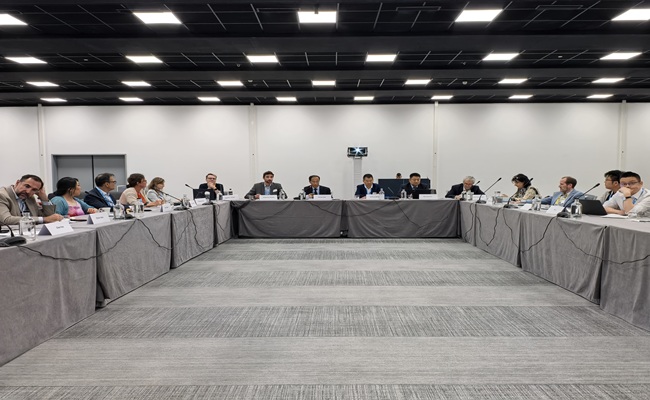
The event was closely aligned with WSIS Action Lines C5 and C6, which emphasize building trust in the use of ICTs and fostering enabling environments. Through this platform, organizers and participants contributed to the global dialogue on responsible AI governance while exploring opportunities for further collaboration across regions and sectors.